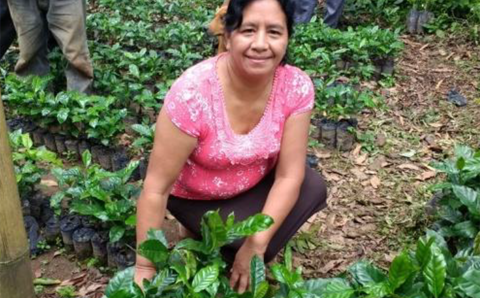Empty Pews
As much as I lament the decline of the institutional church (Big Questions, “Missional Living,” Sept. 2018), I also lament the fact that we are still stuck in our old ways of trying to get people to church instead of teaching our own to BE the church wherever God has placed them—to live as disciples and to open their homes and hearts to their neighbors or coworkers. If we do this well, we will have no need of agencies that facilitate church plants. What we need now is not more churches, but for our laity to live like the disciples of the early church—bold, excited about their faith, and able to model and articulate it authentically. This way churches will grow organically in people’s homes and offices. Then maybe folks will attend church to celebrate what goes on outside of it.
Chris Pullenayegem // online comment
It’s been about 16 years since I stepped into a Christian Reformed church and 15 since I’ve been baptized (Big Questions, “Missional Living,” Sept. 2018). I’ve done the outreach thing, the Alpha thing, and the guilt thing, and I’ve finally acknowledged that I’ve been right all along—there is no magic formula to get people into the pews. Frankly, I stopped worrying about that and moved on to learn how to engage the culture with my faith in Christ. I care about the spiritual growth of those who go to church so they can see the marvelous opportunities all around to speak and act God's wisdom into the lives of others. Those of us who were never here when the church was full aren’t really missing anything because a half-empty church is all we know. There are people who engage in worship on Sunday and wonder what’s next. Is church all there is? I ended up going to seminary to get my answers, but I wish the church had been prepared to help me transform and find my place serving the culture I live in rather than waiting in the pews.
Victoria Shipmaker // online comment
Religious Freedom
The decision by the Supreme Court of Canada in relation to accreditation of law school graduates from Trinity Western University is controversial for a variety of reasons, not the least of which is the power/authority accorded to self-regulating professional bodies (“Joining with Other Faiths for the Sake of Religious Freedom,” Sept. 2018). I am not commenting in order to debate the decision. It sounds an awful lot like you wish to transform Canadian society back to a point where LGBTQ people are denied access not only in churches and other religious institutions but also in and by public or civil institutions—under the banner of diversity and justice, no less. This and other pieces by Christians in North America who lament the erosion of religious freedoms sound a lot like a lament for the loss of having a privileged position in civil society whereby their own views on marriage (exclusively for heterosexual persons) no longer carry the day.
Alyce Dunnewold // online comment
Space to Serve
Thank you for writing “Creating Space to Serve” (Sept. 2018) and incorporating good questions. It is timely and true. I really like the image that comes to mind when you say, “In a world that molds us inward, we need to push back to turn outward.” It’s not effortless to “push back.” I need to do it more.
Denise Posie // online comment
Synod Confronts Abuse
Your coverage of the abuse issue is excellent (“Synod 2018 Confronts Abuse,” July/Aug. 2018). “Too often we hurt the vulnerable among us” is right on. We have seen some serious “overlording” and abuse by some CRC councils and classes; when some of these institutions were proven wrong in their handling of certain accused, they would blame others and not show remorse or sorrow for their own sin, and they often failed to bring compassion and restoration to those who were hurt. It is a good thing sister Bev Sterk brought the serious matter of abuse to synod’s attention so that some constructive healing and renewal can take place. May the 30 percent of our churches who have not yet participated in abuse prevention and care come on board.
John Van Hemert // Lynden, Wash.
Uncomfortable Conversation
Yes! Thank you for writing this article (“Uncomfortable Conversation,” July/Aug. 2018). It’s like a breath of fresh air: so welcome, and also challenging. Safe Church (a ministry of the Christian Reformed Church) joins in the struggle to help create safe spaces in our congregations where stories can be told, where people can listen and learn with compassion and empathy. It’s in these places, when we are honest with ourselves and with each other, that our transforming God is able to do his best work. Lord, have mercy.
Bonnie Nicholas // online comment
Late-Night Church
I read and re-read to family members the inspiring narrative “Late-Night Church” (June 2018) by Rod Hugen of the Village Church in Arizona. It drives home the fact that God looks at the heart of a person, not his outward appearance. We can all learn from this message.
Tina Vandenburg // Dundas, Ont.







